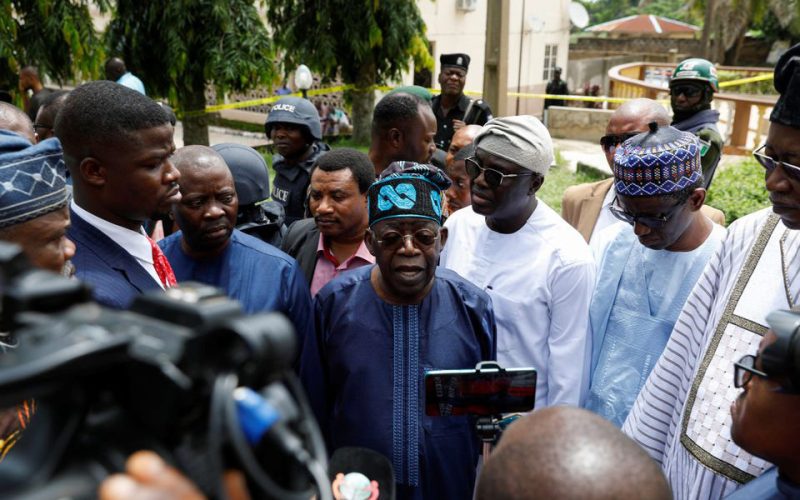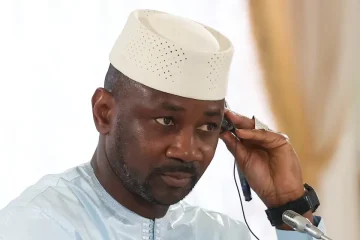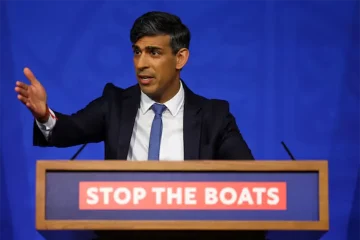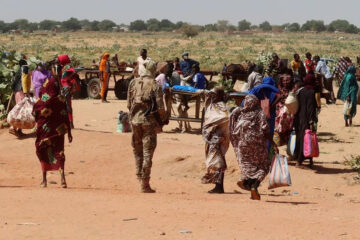NIGERIA’S presidential frontrunner Bola Tinubu picked as his running mate a sitting Muslim senator and former governor of northeastern Borno state, the heartland of an Islamist insurgency that has killed and displaced thousands of people.
The move by Tinubu, who is also Muslim, breaks with past practice where presidential candidates from major political parties have chosen running mates from a different religion in a bid to foster unity in the country.
Tinubu, 70, was last month elected as the ruling All Progressives Congress party’s candidate to succeed incumbent Muhammadu Buhari, who will step down next year after completing two terms.
A Yoruba Muslim from southwestern Nigeria, Tinubu told reporters after meeting Buhari in northern Katsina state that he had chosen Kashim Shettima, 55, to be his presidential running mate.
By picking Shettima, Tinubu may also be looking for a deputy broadly acceptable to powerbrokers in the north, which is a large voting block.
“He is competent, capable, reliable and able,” Tinubu said.
Atiku Abubakar, the main opposition candidate and Tinubu’s main rival, is a northern Muslim who has picked a Christian running mate from the south.
Since the end of military rule in 1999, Nigeria has followed an unwritten rule where power is shared between the largely Muslim north and mainly Christian south.
Growing insecurity will be a major election issue next year. A decade-long Islamist insurgency and attacks and kidnappings for ransom by armed gangs mostly in the northwest are some of the major security challenges.
During Shettima’s 2011-2019 governorship, Borno state grabbed global headlines when Boko Haram militants abducted more than 200 schoolgirls in the Chibok community in April 2014.
Shettima was among those who supported the release of low-risk detainees caught up in the government’s fight against insurgents, as a good-will gesture.














